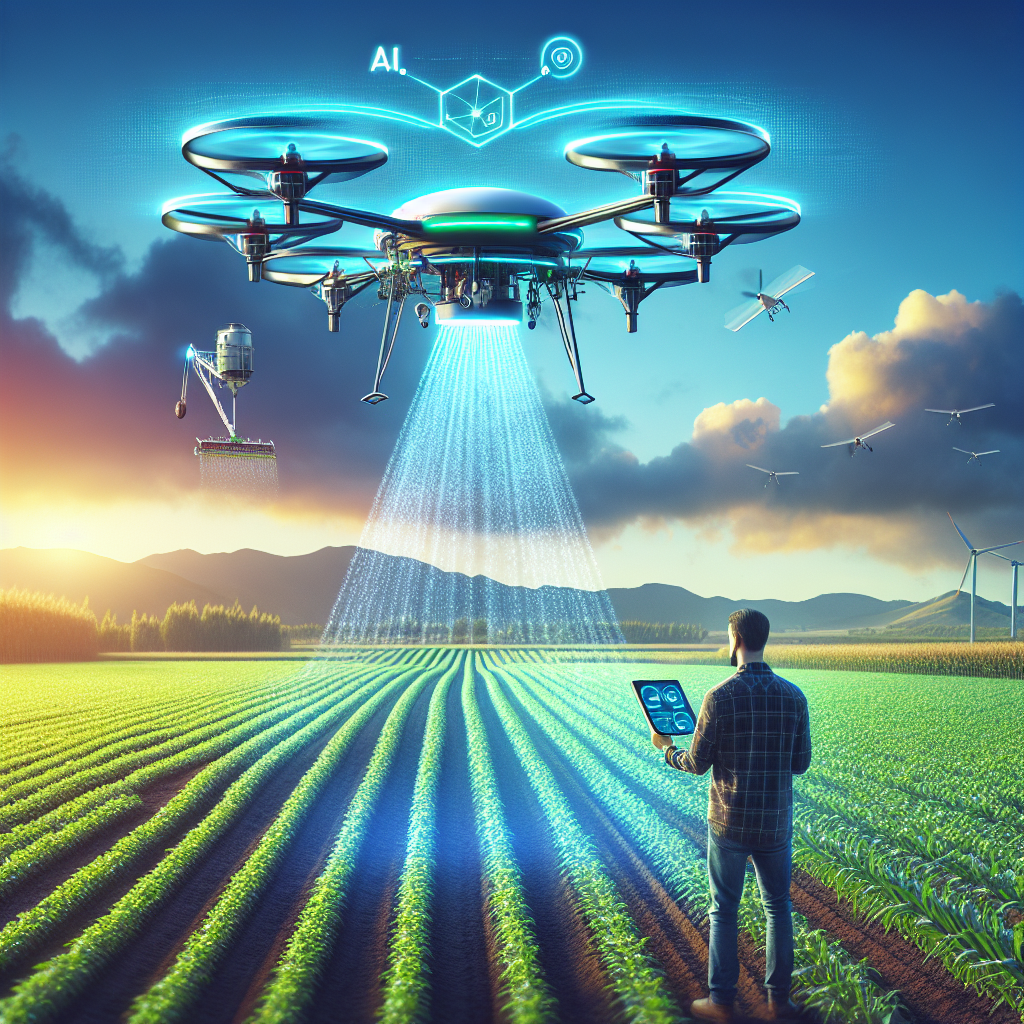The Potential of AI in Agriculture
Artificial intelligence (AI) is revolutionizing the way we approach various industries, and agriculture is no exception. With the world’s population expected to reach 9.7 billion by 2050, the demand for food is only going to increase. To meet this growing demand, farmers need to find innovative ways to increase productivity, reduce waste, and optimize resources. AI offers a multitude of solutions to help farmers achieve these goals.
AI in agriculture involves the use of advanced technologies like machine learning, computer vision, and data analytics to improve crop yields, monitor plant health, manage pests, and streamline farming operations. By harnessing the power of AI, farmers can make more informed decisions, increase efficiency, and ultimately, boost their bottom line.
One of the key benefits of AI in agriculture is its ability to analyze vast amounts of data quickly and accurately. By collecting data from sensors, drones, satellites, and other sources, AI can provide farmers with insights into soil health, weather patterns, crop growth, and more. This data-driven approach allows farmers to make data-driven decisions, leading to better outcomes.
AI-powered tools can also help farmers detect and prevent diseases, pests, and weeds before they become a problem. By analyzing images of crops taken by drones or cameras, AI algorithms can identify early signs of disease or infestation, allowing farmers to take action before it spreads. This proactive approach can help prevent crop losses and reduce the need for chemical pesticides.
In addition to monitoring plant health, AI can also help farmers optimize irrigation and fertilizer use. By analyzing data on soil moisture levels, weather conditions, and crop growth, AI algorithms can recommend the optimal amount of water and nutrients to apply to each crop. This precision farming approach can help reduce water waste, minimize environmental impact, and improve crop yields.
Another area where AI is making a significant impact in agriculture is in autonomous farming equipment. Autonomous tractors, drones, and robots equipped with AI technology can perform tasks like planting, spraying, and harvesting with precision and efficiency. These machines can work around the clock, without the need for breaks or rest, helping farmers save time and labor costs.
Furthermore, AI can also help farmers with predictive analytics, forecasting market trends, and optimizing supply chain management. By analyzing historical data and market trends, AI algorithms can help farmers make better decisions about when to plant, harvest, and sell their crops. This can improve profitability and reduce risks associated with fluctuating market prices.
Overall, the potential of AI in agriculture is immense. By leveraging advanced technologies like machine learning, computer vision, and data analytics, farmers can increase productivity, reduce waste, and optimize resources. With the world’s population expected to continue growing, the need for innovative solutions in agriculture has never been greater. AI offers a promising way to address these challenges and help farmers feed the world sustainably.
FAQs:
Q: How can AI help farmers improve crop yields?
A: AI can help farmers improve crop yields by analyzing data on soil health, weather patterns, and crop growth to provide insights into optimal planting times, irrigation, and fertilizer use. By making data-driven decisions, farmers can optimize resources and increase productivity.
Q: Can AI help farmers detect and prevent diseases in crops?
A: Yes, AI-powered tools can help farmers detect and prevent diseases in crops by analyzing images of plants taken by drones or cameras to identify early signs of disease or infestation. This proactive approach can help farmers take action before it spreads and reduce crop losses.
Q: How can autonomous farming equipment help farmers?
A: Autonomous farming equipment, such as tractors, drones, and robots equipped with AI technology, can help farmers perform tasks like planting, spraying, and harvesting with precision and efficiency. These machines can work around the clock, without the need for breaks or rest, helping farmers save time and labor costs.
Q: What are some other ways AI can benefit agriculture?
A: AI can benefit agriculture in various ways, such as predictive analytics for market trends, optimizing supply chain management, and streamlining farming operations. By leveraging advanced technologies like machine learning, computer vision, and data analytics, farmers can make more informed decisions and improve profitability.

